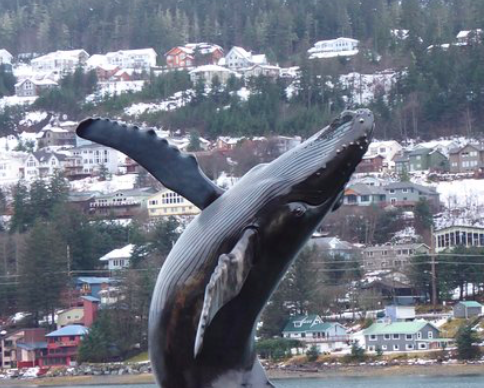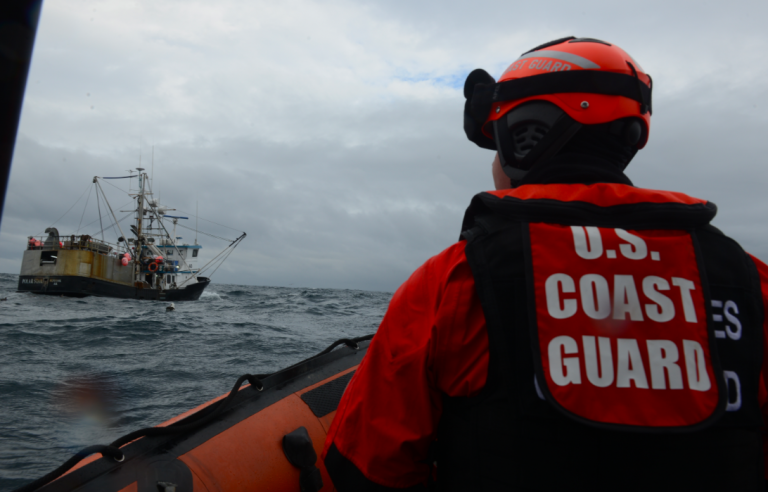KETCHIKAN PONIES UP CASH TO JOIN THE FIGHT
Juneau lost its case in December involving its use of cruise ship passenger fees for broad amenities — such as the new whale park built near the Douglas Bridge.
It was a costly loss. And it was a decisive loss. The judge left very little wiggle room for an appeal.
The city has until Jan. 10 to request clarification from U.S. District Court Judge Russel Holland about his Dec. 6 decision, which sided with the CLIA Alaska and Cruise Lines International Association.
After that, the Holland decision will be on the books as a declaratory judgment. It was decisive and clear — the U.S. Constitution itself does not allow Juneau to use passenger fees for anything but direct services to ships.
Whether Juneau will appeal is the next move on the chess board. The Assembly meets next on Jan. 14; deliberations on lawsuits or potential lawsuits usually take place in executive session.
But if it does, it has a friend in the City of Ketchikan. Last week, Ketchikan’s City Council voted to transfer $100,000 to the City Attorney’s legal account to support an appeal to the Ninth Circuit Court of Appeals, should Juneau decide to appeal the decision.
Defending its use of the fees has set the city back nearly $900,000 in legal expenses. That money has come from Juneau’s taxpaying residents, but also ironically some of it came from the cruise ship passenger fees themselves, because the city says winning the lawsuit would benefit passengers.
Juneau’s challenge would ensure the entire case will end up at the U.S. Supreme Court, because few plaintiffs allow a Ninth Circuit decision to stand, since the court is overturned so frequently.
LAWSUIT BACKGROUND
Juneau’s $5 cruise ship passenger fee, passed by voters in 1999 and enacted in 2000, was designed to cover a wide range of infrastructure burdens that come with the millions of passengers calling on Juneau every year, including infrastructure and emergency services. The city also gets a $3 per passenger port development fee. In all, it’s brought Juneau more than $35 million over the past four years.
But over time, Juneau changed the fee’s purpose to include capital improvements, crossing guards, operating funds and more along Juneau’s waterfront and beyond.
In 2016, CLIA challenged the how Juneau was using passenger fees.
The trade group said that the city was using it for things not related to the actual docks, and that violates the Tonnage Clause, the Commerce Clause, and the Supremacy Clause of the US Constitution.
The city has a project proposal process for tapping those funds. In 2019, the fees funded things like bicycle patrols for police in the downtown area, downtown restroom maintenance, port security, and more — all are needed to keep some level of dignity in the heavily used downtown core.
A grant program also allows projects to be proposed and approved.
The CLIA lawsuit named $22 million spent on government operations, $2 million for city bus services, and $447,000 for work on a private dock that cruise ships and their passengers are not able to access. It was “The Whale” that was the final straw.
[Read the 2018 list of approved projects]
The massive bronze whale in its infinity pool was a bridge too far for the cruise industry, which argued that Juneau was now using the fee for things wholly unrelated to the cruise ships. CLIA singled out the multi-million-dollar bronze whale, located more than a mile from the cruise ship docks.
The trade group didn’t ask for a refund of the fees spent on the walkway, whale fountain, artificial island, and other beautification features. But it wanted the city to stop the misuse of the funds.
FAR-REACHING IMPACTS
Judge Holland ruled that Juneau may indeed collect passenger fees, but that under the Tonnage Clause of the U.S. Constitution, the fees must be used for improvements that directly relate to the ships.
That decision has impacts, not only for Juneau but for Ketchikan and other ports of call around the country, although the CLIA says nowhere in the country do port communities use the fees the way Juneau has used them.
The Juneau Assembly now must decide if it wants to spend another possible $1 million appealing the Holland decision to the Ninth Circuit, and then defending a possible win to the Supreme Court, a course that would drag on for at least two more years and further irritate its relationship with the cruise industry.







